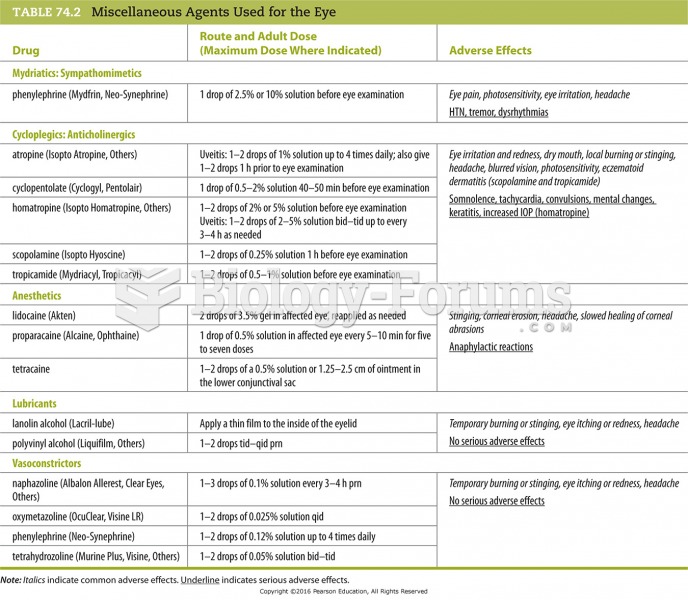|
|
|
Looking at the sun may not only cause headache and distort your vision temporarily, but it can also cause permanent eye damage. Any exposure to sunlight adds to the cumulative effects of ultraviolet (UV) radiation on your eyes. UV exposure has been linked to eye disorders such as macular degeneration, solar retinitis, and corneal dystrophies.
Essential fatty acids have been shown to be effective against ulcers, asthma, dental cavities, and skin disorders such as acne.
Adolescents often feel clumsy during puberty because during this time of development, their hands and feet grow faster than their arms and legs do. The body is therefore out of proportion. One out of five adolescents actually experiences growing pains during this period.
Approximately 500,000 babies are born each year in the United States to teenage mothers.
Although the Roman numeral for the number 4 has always been taught to have been "IV," according to historians, the ancient Romans probably used "IIII" most of the time. This is partially backed up by the fact that early grandfather clocks displayed IIII for the number 4 instead of IV. Early clockmakers apparently thought that the IIII balanced out the VIII (used for the number 8) on the clock face and that it just looked better.
 Draping for a woman’s chest. A. Place a towel over the sheet on the upper chest. B. Hold the towel ...
Draping for a woman’s chest. A. Place a towel over the sheet on the upper chest. B. Hold the towel ...
 Cover and secure the cold source in place. Wrap the cold source using a towel or elastic bandage to ...
Cover and secure the cold source in place. Wrap the cold source using a towel or elastic bandage to ...





